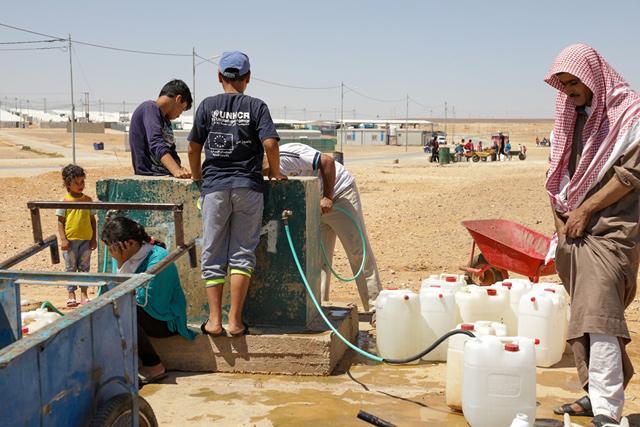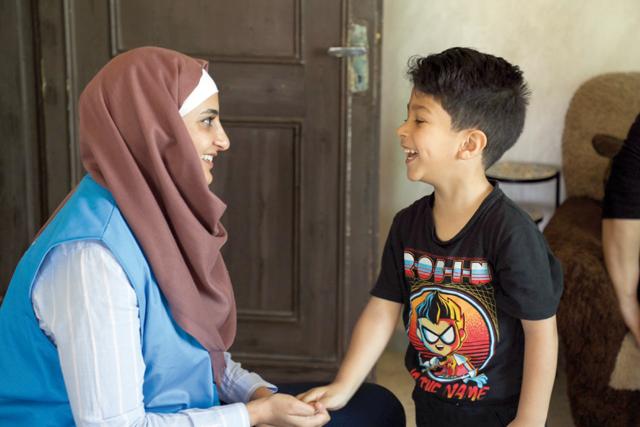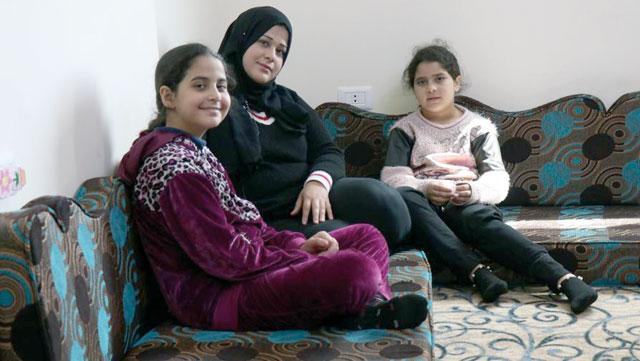You are here
No plan yet to reduce cash assistance for Syrian refugees — UNHCR
By Elizabeth Turnbull - Aug 29,2019 - Last updated at Aug 29,2019

The UNHCR cash assistance programme aided close to 130,000 individuals in Jordan in July of this year (Photo courtesy of UNHCR Facebook page)
AMMAN — The UNHCR currently has no plans to reduce the amount of cash assistance it provides to Syrian refugees in Jordan despite a decrease in funding.
UNHCR Jordan spokesperson Lilly Carlisle confirmed this fact in an interview with The Jordan Times on Thursday, noting that the cash assistance programme runs until the end of September.
The programme aided close to 130,000 individuals in Jordan in July of this year, almost 120,000 of whom were Syrian refugees, according to UNHCR data. This translates into a total of over $5 million of cash assistance in July distributed to Syrian and Iraqi refugees, as well as to refugees of other nationalities.
For 2019, the total amount of aid disbursed by the UNHCR is close to $40 million, according to data provided by the UNHCR.
Cash assistance is distributed in varying amounts depending on the size of the family. A regular cash assistance payment consists of JD80 per month for a single person and up to JD155 per month for families comprised of seven individuals or more, according to information provided by Carlisle.
In a 2017 report, most recipients surveyed by the UNHCR noted spending the majority of the money they received on their most costly necessity: Rent.
According to a study carried out by the UNHCR in 2017, amongst Syrian refugees receiving cash assistance, almost all cash assistance recipients noted that cash assistance improved their living conditions, while only 4 per cent stated that the monetary assistance did not have an impact on their living conditions at all.
Twenty-eight per cent of those surveyed by the UNHCR reported having less debts as a result of cash assistance, whereas 25 per cent of households said they were enjoying bigger portions of food and better quality food, 16 per cent said that they had better living accommodations and 3 per cent sent their children back to school as a result of such assistance.
Besides the income from the cash assistance programme, just 25 per cent of Syrian refugees in 2017 reported living off a wage. Among the other sources of income noted were cash and vouchers distributed by other NGOs, borrowed money, child labour, the selling of products made at home, aid from relatives living in Jordan and support from the individuals’ host community, according to a UNHCR report issued in 2017.
Related Articles
AMMAN — In 2021, approximately 5,800 refugees returned from Jordan to Syria, which took place on a voluntary basis, independent of UNHCR, ac
AMMAN — The Ministry of Labour has issued over 153,000 permits for Syrian refugees since the beginning of 2016, a United Nations High Commis
AMMAN — Following a surge in donor activity over the last month, the UNHCR’s 2019 operations in the Kingdom are 44 per cent funded as of the

















